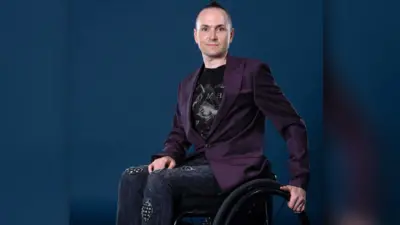We've updated our Privacy and Cookies Policy
We've made some important changes to our Privacy and Cookies Policy and we want you to know what this means for you and your data.
Gaming 'hero' retires at 23 due to ill-health
Image source, Yifan Ding
China's most famous e-sports player, Jian Zihao, has officially retired from gaming aged 23, citing ill-health.
He had been a professional gamer since 2012, playing League of Legends under the name of "Uzi".
His decision to quit was announced on Chinese social media site Weibo, where he has five million followers.
Gaming addiction is seen as a big problem in China and the government often links it to ill-health in children.
In November, it imposed a curfew on online gaming for under-18s, banning them from playing between 2200 and 0800.
In a message to fans, Uzi - also nicknamed "Mad Dog" for his aggressive playing style - said: "I regret to inform you all that I am making the decision to retire.
"As a result of staying up late for years, a fatty diet and being under insurmountable stress, last year I found out that I was type-2 diabetic."
He went on to say that he had changed his work schedule, exercised and "taken medicine", but that his situation had not changed.
"My mental state is not as good as it was before," he said.
"The doctor has told me that if I continue there could be serious complications. Thank you to my fans for your support and companionship all these years."
'Gaming disorder'
Jian Zihao's fans wished him well and encouraged him to look after himself and rest.
One wrote simply: "The legend retires, by the myth will live on."
He had nearly 300,000 replies to his post and 600,000 people used the hashtag #UziRetires
In reporting the news of his retirement, state media walked a careful line between praising him as a national hero while also highlighting the health risks of excessive gaming.
China is the second-largest gaming market in the world, but the government has repeatedly said that video games negatively affect young people.
The World Health Organization recognises "gaming disorder" as a mental health condition, but the American Psychiatry Association manual does not officially list it, citing it as a condition for "further study".
Top Stories
More to explore
Most read
Content is not available








